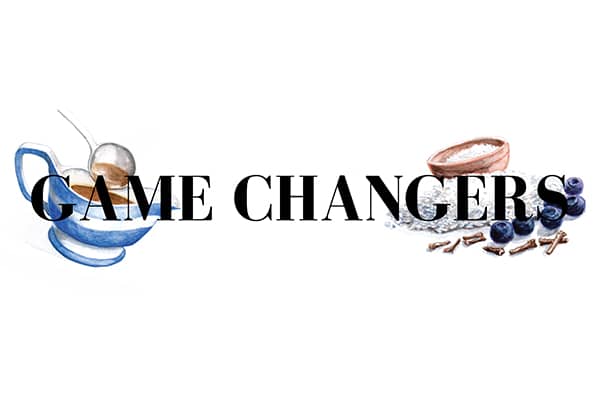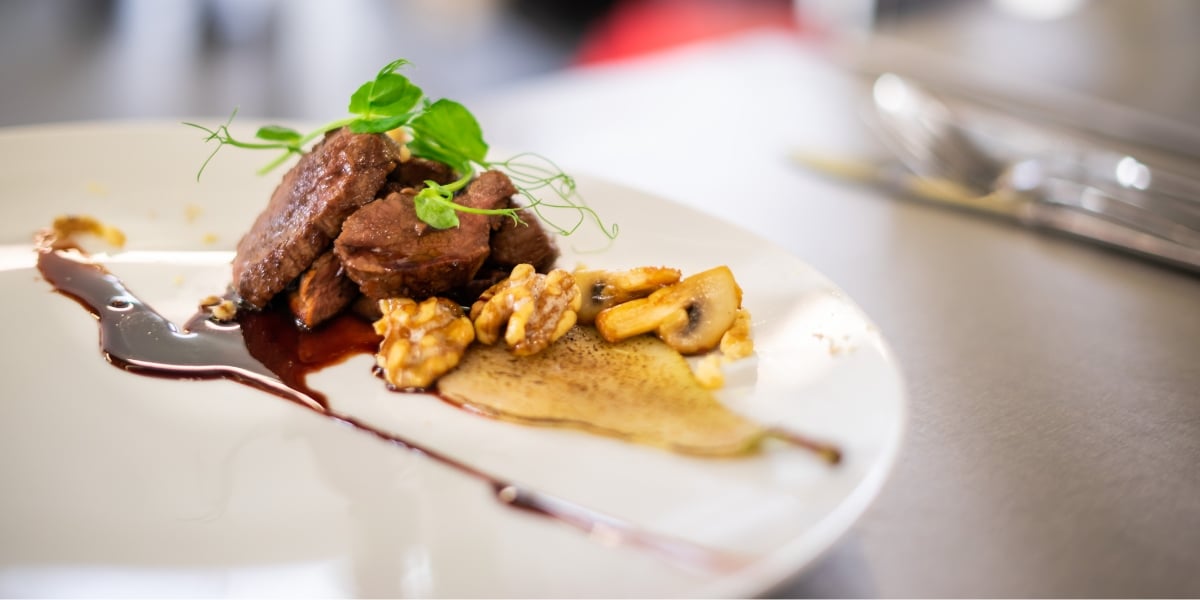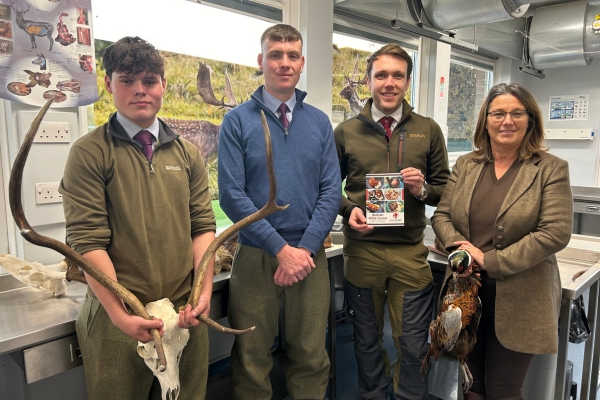
Game changers
We asked five of the country’s best wild food chefs for their top hacks which will make preparing and cooking game easier and fun.
Get information on the legal shooting season for mammals and birds in the UK.
Apply for funding for your project or make a donation today
Comprehensive information and advice from our specialist firearms team.
Everything you need to know about shotgun, rifle and airgun ammunition.
Find our up-to-date information, advice and links to government resources.
Everything you need to know on firearms law and licensing.
All the latest news and advice on general licences and how they affect you.

BASC regional officer Matt Dutton updates on his team’s work to educate future chefs about the benefits of using wild game as an ingredient.
For several years now, BASC’s central regional team have been visiting colleges across the area to work with level 3 catering students. Over recent months we have visited some inner-city colleges to run wild game preparation and cookery masterclasses for the students.
The days form part of our ongoing work to promote and protect the future of shooting and see us taking deer and birds in the fur and feather to explain the ‘why, what, when and how’ of the process of harvesting these species. This also includes providing the ‘backstory’, highlighting the crucial work that goes into managing the habitats where these species thrive.
During the sessions, our regional officers give demonstrations on skinning and dressing, followed by breaking the carcasses down into primary cuts. We then go through the finer butchery methods. But our workshops don’t end there – the students also get hands-on with the whole process and have a go at plucking, skinning, and butchery.
Then, time comes for getting stuck into cooking some game dishes. Firstly, we demonstrate a few examples to show how easy game is to use as an ingredient and to let everyone have a taste.
The clock then starts for the students to come up with and prepare a wild game dish using the available ingredients and a choice of the meat they have been working with that day.
Once the clock runs out, students present their dishes and are given feedback on the taste, overall presentation and their use of complementary ingredients. The winner usually receives a prize in recognition of their efforts.
It’s great fun, and certainly brings a competitive edge to the days which seems to go down really well.
We recently visited Rugby College and worked with 15 of their level 2 and level 3 catering students. Many of them already work in the industry, however, very few had any experience of cooking or even tasting wild game before.
Geoff Sykes, catering lecturer at Rugby College, recounted the session, saying: “The presentation delivered by Amy and Matt from BASC was an enlightening and interactive experience for students interested in the culinary arts. Their comprehensive session provided valuable insights into various species of wild game, handling techniques, and practical cooking skills that left a lasting impression on everyone who attended.
“Their presentation began with an engaging overview of different game species, shedding light on their characteristics and culinary potential. This introduction not only educated the students about the diversity of game but also instilled a deeper appreciation for sustainable hunting practices.”
The students showed a good deal of interest in the benefits of wild game, particularly its traceability and provenance that can be traced at a level far greater than any meat brought from a supermarket.
With the presentations done, we got down to business and walked the students through venison butchery and recipe examples for the various cuts of meat. To ‘put money where our mouth is’ we always quickly breast out a couple of pheasants, and just five minutes later they are presented to the students as tasty pheasant goujons.
Once everyone had a taste, students got to choose between venison cuts and a pheasant breast to use for their own dishes. Each dish was then presented to the lecturers to taste and offer a critique on each student’s creation.
For Geoff, this was an absolute highlight of the day: “This hands-on activity not only encouraged creativity but also reinforced the lessons learned throughout the session. The students were tasked with utilising their newfound knowledge to create delicious dishes with game meat.”
Geoff went on to say that: “What stood out most about the BASC presentation was its emphasis on sustainability and affordability in culinary practices.
“The rising popularity of game meat in culinary circles has underscored the importance of understanding and utilising this resource responsibly. BASC’s efforts to promote game-based cooking align perfectly with this trend, offering students a valuable skillset that is both environmentally conscious and economically viable.
“Amy and Matt’s expertise, combined with the hands-on nature of the session, left a lasting impact on all participants. With the integration of game-based cooking into the curriculum, Rugby College is poised to lead the way in culinary education, preparing students for success in an ever-evolving industry. Thank you so much, I can’t wait for the next one.”
As Geoff mentioned, the college has now integrated specialised game classes into its curriculum off the back of our masterclasses. These will provide students with opportunities to explore the culinary possibilities of game meat, and help ensure they are well-equipped to meet the growing demand for sustainable and innovative cuisine.
One of our proudest achievements so far is our continued work with Stafford College. When we contacted the lecturers at Stafford College five years ago to ask if they would be interested in introducing game to their students, we had no way to envisage our relationship would develop so well.
Tom Harrison, curriculum leader for hospitality and catering said: “Once again, our students had a great experience with Matt from BASC. Game truly is a prime example of ‘field to fork’. Matt has fantastic knowledge of game and for him to come in and share his passion was inspiring for all.
“From the start of the day, the students were thoroughly engaged with the talk and demonstrations and enjoyed the hands-on butchery session.
“Every time Matt comes into the college, I pick up more knowledge about game and we all learn how important it is to use and treat it with the respect it deserves.”
Five years on, Stafford College hosts an annual event where we guest lecture in the catering facility for the whole day. Many in-feather pheasants, pigeons (and this year even grouse) are taken in by us, and the students spend the day processing the birds and creating some fantastic game dishes.
To go one step further, we also take either a red or fallow deer carcass for the students to butcher and cook, too.
To up the stakes a bit, each year Stafford’s students are tasked with creating a five-course game dinner which is then served to 50 paying customers in the college’s restaurant. This is a huge achievement for our team and the shooting community. It’s very easy to preach to the converted, but to bring non-shooters from urban backgrounds on our side and get them to try game is quite a nerve-wrecking challenge.
Thankfully, in the five years we’ve been serving game at the college’s restaurant, we have not had a single complaint. What’s even more rewarding is that many ask for contact details for local game dealers following their experience at Stafford College’s game evening.
We always see a few raised eyebrows and squeamish faces from students when we start processing pheasants and whole deer carcasses. But it’s a credit to all the students we’ve taught so far that none have refused to cook with any of the meat provided.
It must be understood that most, if not all, come from inner-city backgrounds and shooting wild animals for food is an entirely alien concept for them.
The sessions are of immense value to the colleges and their students because working with game is part of their level 3 syllabus. The value to BASC and to the wider shooting sector will hopefully emerge as this new generation of chefs begin rolling out more game dishes in pubs and restaurants around the country.
One of level 3 catering and hospitality students said: “I wish we could do this masterclass every week. I really enjoyed the butchery part of the day and getting stuck in. Matt was very friendly and approachable when I asked questions and was great doing the demonstrations. This experience has made me want to use more game when I cook.” I say we can’t really ask for more than that.
We couldn’t do all this without the brilliant colleges and their catering lecturers who let us use their facilities. We are also immensely proud of the students who take on this challenge positively and without prejudice, opening their minds to new ideas about sourcing food.

We asked five of the country’s best wild food chefs for their top hacks which will make preparing and cooking game easier and fun.

A visit to Howle Manor Shoot in Shropshire was a memorable one for a group of inner-city schoolchildren from the West Midlands.

BASC Scotland director Peter Clark recently joined Tayside and Grampian Moorland Group coordinator Deirdre Falconer to showcase game to local school pupils.
Sign up to our weekly newsletter and get all the latest updates straight to your inbox.
© 2025 British Association for Shooting and Conservation. Registered Office: Marford Mill, Rossett, Wrexham, LL12 0HL – Registered Society No: 28488R. BASC is a trading name of the British Association for Shooting and Conservation Limited which is authorised and regulated by the Financial Conduct Authority (FCA) under firm reference number 311937.
BASC Direct Ltd is an Introducer Appointed Representative of Agria Pet Insurance Ltd who administer the insurance and is authorised and regulated by the Financial Conduct Authority, Financial Services Register Number 496160. Agria Pet Insurance is registered and incorporated in England and Wales with registered number 04258783. Registered office: First Floor, Blue Leanie, Walton Street, Aylesbury, Buckinghamshire, HP21 7QW. Agria insurance policies are underwritten by Agria Försäkring.
If you have any questions or complaints about your BASC membership insurance cover, please email us. More information about resolving complaints can be found on the FCA website or on the EU ODR platform.